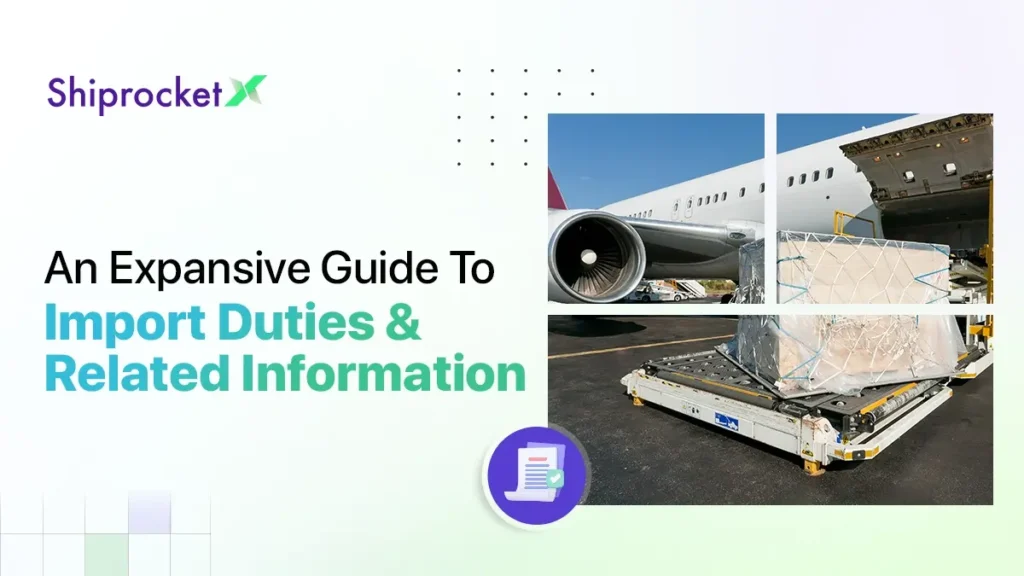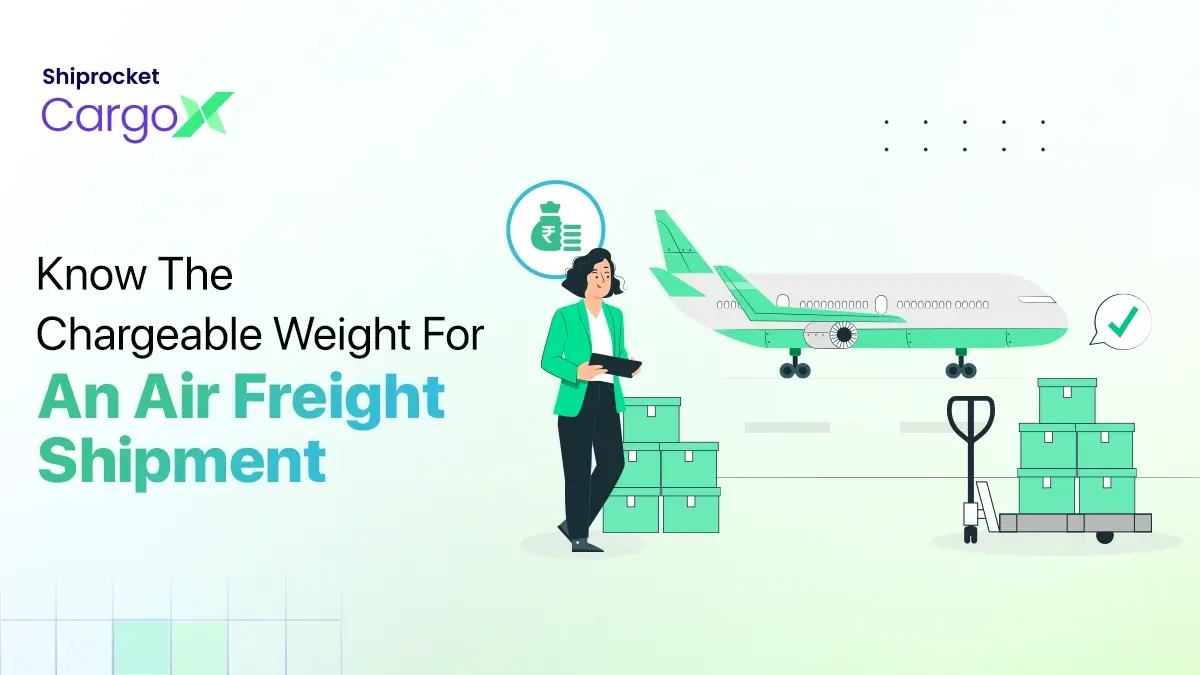Import Duties: Essential Insights for eCommerce Success
Import duties are those silent influencers in the international marketplace that may go unnoticed until they start eating on the profit margins of an eCommerce business. Understanding the impact of import duties on global trade helps you prepare and plan better for fulfilling your international orders.
Many organizations and treaties worldwide directly affect the import duties levied on international trade. Nonetheless, several nations attempted to promote free trade by reducing these import duties. The World Trade Organisation (WTO) claims that their member nations made significant efforts to cut import tariffs.
This article highlights the intricacies and complexities involved in import duties that can impact your profit margins immensely. Every eCommerce business dealing in international trade must know and understand them.

Import Duties Explained
When a business wants to import goods from a foreign nation, the country, where the business is based, collects tax on the imported goods known as import duty. The tax amount usually depends on the value of the goods imported by the business. In certain scenarios, import duty may also be called tariff, customs duty, import tariff, or import tax.
But why exactly are you paying import duties? There are two reasons why countries levy taxes on imports. They are:
- Import taxes are a revenue stream for the local governments. They seize every opportunity to collect funds and invest them into their economy.
- The governments want to give locally-grown or domestic businesses a market advantage. Imposing import duties makes local goods cheaper than foreign ones, which encourages customers to buy locally produced goods.
Impact of Import Duties on Shipments
Being an online merchant, import duty can significantly affect your pricing structure when you decide to expand your business cross-borders. You’ll need to adjust the price of your products considering the amount of import duties that you would pay on the imported goods.
However, the impact is not limited to changed pricing of the products. Import duties substantially increase the transit and delivery time of the goods you ship. Thus, It will change the dynamics of your shipping process and will impact eCommerce shipping.
Having in-depth knowledge about import duties allows you to stay more transparent with your customers. Clarifying your pricing structure and shipping period beforehand to the customers will allay the possibility of them accusing you of shipping delays or hidden charges later.
The Amount Levied as Import Tax
The rates of customs duties in different countries depend on the type of products you import. Local governments may levy additional compensation cess on a few special categories of goods. Modifications always occur in custom duty rates and hence they’re volatile. An importer must stay updated with prevailing rates at any given time, as import duty rates impact the bottom line.
However, the import VAT ranges between 5% and 28% in India. However, most of the products come under the standard import duty rate of 18% GST.
Classification of Imports: The HS Code
The Harmonised System Nomenclature (HSN) or Tariff Code is a globally standardized system containing names and numbers that classify traded goods and their custom duty structure. HSN plays a significant part in the complete import process. Therefore, a business must know the right HSN code as it directly affects the amount of import duties a business will pay.
When you’re filling out the waybill for your international shipment, don’t forget to add those HS codes for your goods. Customs officials use these codes to figure out what you’re shipping and slap on the right taxes and duties. Mess up the code, and you might end up entering the wrong amount, or, even worse, your package could get rejected from the destination country. So, make sure you know those HS codes; it’s the key to hassle-free customs clearance and avoiding any unexpected bumps in the road.
It may take a long to understand the appropriate method of classifying a product to derive its exact custom duty rate. Specialized knowledge is needed to apply a correct rate for the import duty on each product. For instance, you might want to determine the import duty rate for electronic devices, such as smartphones. For this, a classification specialist will have to consider many factors like the device’s technological features, its country of origin, the materials used in manufacturing it, its wireless capabilities such as 5G technology, environmental considerations, the software it uses, and branding.
Import Duty Estimation
Import duty rates work differently from simple flat rates. Several parameters come into consideration while calculating the rate. There are custom duty calculators available for traders to get an initial estimate of the import duties. But these are unable to determine the exact rate for any kind of product. Therefore, it’s best to consider a reliable source like the Indian Customs Electronic Data Interchange Gateway (ICEGATE), which has the perfect import duty calculator.
The ICEGATE calculator uses the product description, origin country, and the good’s value to provide an accurate estimate. All these factors play an important role in the estimation process and are equally critical.
Who Pays the Import Duties in a Trade?
The Importer of Record (IOR), which is often the business owner or individual receiving the goods, is legally obligated to pay the import duty upon importation. As the IOR, the business is responsible for ensuring that all goods comply with the laws and regulations of the destination country. The IOR doesn’t have to be the end consumer or business owner; there are companies that specialize in acting as the IOR for a fee, assuming all responsibilities and liabilities. This is particularly beneficial for businesses lacking internal resources to handle complex international import procedures.
Acting as customs brokers, these companies manage customs regulations on your behalf, paying import duties upfront and invoicing you later, streamlining the process to prevent costly delays. While they take on this responsibility to simplify the logistics, it’s important to note that this service comes with a fee, and the ultimate financial responsibility lies with the importer.
How to Handle Import Duties During International Shipping?
Dealing with Customs Paperwork
When you’re shipping goods worldwide, you’ve got to tackle those customs declaration forms, and the main player here is the commercial invoice. This specialized export document gives you information on your goods, helping customs officials figure out the taxes and duties owed. Now, you’ve got choices – you can either manage these declarations yourself to save some bucks, or you can bring in a customs broker to handle the details for you. It’s all about finding the customs broker that suits your style.
Choose an Efficient Customs Brokerage Service
Partnering with a customs broker will allow your business to have access to a global network of customs experts. You’ll have complete transparency and maximum visibility over the declarations made on your behalf. They may also give you access to the global rate cards to provide transparent costs. A custom broker using state-of-the-art technology, such as AI-powered compliance tools, may further reduce import clearance delays. Moreover, the broker company will also settle all import duties and taxes, on your behalf, to prevent any delays in your international deliveries.
Update Your Customers About the Payable Import Duties
Get your customers ready for possible import duties. No matter which Incoterms you go for in your international shipments, make sure to share them openly with your customers from the get-go. Springing high shipping fees on them at the last minute is a surefire way to spoil the deal. Keep it transparent and smooth for a better customer experience.
Conclusion
When you’re dealing with international orders as an eCommerce business, it becomes crucial to understand the aspects and impact of import duties. From knowing the intricate details of product classification and the effect of trade agreements to the significant role of the Importer of Record (IOR), it takes careful consideration and adherence to regulations to comprehend these complexities of import duties. You can delve in international trade with confidence, ensure compliance, minimize delays, and make informed financial decisions by diving deep into the workings of import duties. However, since this could be cumbersome, you can hire companies that serve as customs brokers. They can alleviate your burden by managing the red tape and paying import duties upfront. But it’s also important to remember that these services are chargeable and the ultimate financial responsibility rests with the importer.
In some cases, you may get the import duties waived. This is true especially for goods like essential medicines, strategic items, and goods covered by different trade agreements. It would save you some good amount of money if you know about these exemptions.
You can use the tariff and taxes look-up tool from Customs Info Database for determining import duties and taxes for shipping products to over 170 markets. The International Trade administration offers this Global Tariff Finder tool and a customs user guide to help businesses and individuals find custom duty rates.
India recently bumped up the basic customs duty on various things like shoes, fridges, washing machines, ACs, furniture fittings, bling, and fancy tableware. The government is doing this to keep the rupee from dropping too much against other currencies and to control the current account deficit. The idea is also to cut down on importing specific stuff.
Now, when they increase the import duty, it makes the prices of these things go up. So, people are less likely to buy them, and that helps our local manufacturers. The whole point of slapping import duties on things is to give a boost to our country’s economy, support our people, create jobs, and take care of our environment.




